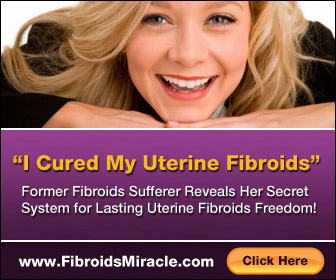Uterine fibroid is a noncancerous tumor that grows on the uterine walls of a female. They are also known as uterine leiomyomas and can grow as a single tumor or as clusters. These leiomyomas can be as small as a seedling and can develop into the size of a tennis ball.
Having fibroids on your uterine wall does not mean you are at risk of ovarian or uterine cancer. These tumors are benign, so they will not develop into cancer. Uterine fibroids and uterine cancer are sometimes mistaken as the same due to same signs manifested.
These fibroids, though not life-threatening, can cause health complications. They cause irregular bleeding during the menstrual period, and pelvic pain. These growths can become a bulky mass, enlarging the uterus. They can also expand up to the ribcage.
There are some rare cases wherein this lump becomes twisted and severe. These cases include heavy bleeding, pelvic and abdominal pain, and constipation. Studies have shown that there are factors that could affect the growth of the tumor for the worse.
They are also asymptomatic. This means the individual will not notice its presence unless she undergoes a check-up. The cause of these lumps is unknown, but it could be associated with the sex hormones.
Recent studies showed that female sex hormones might contribute to the growth of these leiomyomas. Tumor size was shown to increase as the Estrogen level increases.
Pregnant women were shown to have bigger fibroids compared to those who aren’t. That is because the estrogen level during pregnancy is high. It was also observed that females under the reproductive age range are more likely to have a uterine fibroid.
This could also be inherited if one of your family members has it. Lifestyle can also be associated with its development.
Individuals consuming meat, caffeine and alcohol in large amounts are likely to have uterine leiomyoma. Females taking in birth controls containing estrogen are also at risk of having tumor on their uterine wall.
Though harmless, it is best to have these tumors removed from your body. This mass of tissues can go away by taking prescribed medicines and diet. On some individuals, these fibroids can shrink on their own.
Since this tumor is associated with the sex hormones, they shrink when there is low production of estrogen. This explains why women under menopause have little or no lumps on their uterine walls.
Uterine leiomyoma cannot go away without medical intervention unless you are in menopause. Studies introduced progesterone therapy to alleviate this tumor. This treatment, however, would only shrink down the lumps and not remove them.
If you are in doubt of taking in medicines, there are natural ways to manage these fibroids.
Drinking green tea extracts reduce fibroids and prevent new ones from forming. Selected herbal medicine can also help aid in fibroid shrinkage. Acupuncture could also be a natural alternative for modern treatment.
Managing your blood pressure is another way. Studies have shown that leiomyomas are also associated with high blood pressure. Including fruits and vegetables in your diet can reduce blood pressure and fibroids.


